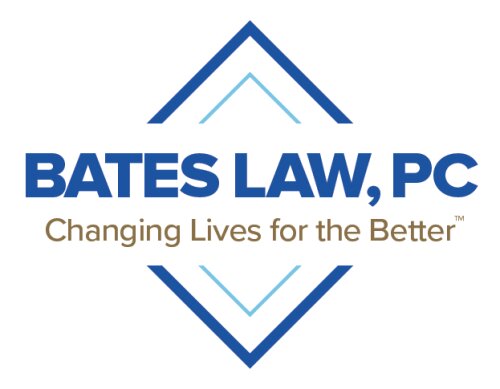Best Antitrust Litigation Lawyers in San Diego
Share your needs with us, get contacted by law firms.
Free. Takes 2 min.
List of the best lawyers in San Diego, United States
About Antitrust Litigation Law in San Diego, United States
Antitrust litigation focuses on challenging business practices that may limit competition or harm consumers and competitors. This area of law deals with claims related to unfair monopolies, price-fixing, market allocation, bid rigging, and other actions that violate federal or state antitrust statutes. In San Diego, antitrust cases often arise in industries ranging from technology to healthcare, and these matters can be pursued in both civil and criminal courts. The outcomes of antitrust litigation can significantly affect businesses, consumers, and the competitive landscape of the region.
Why You May Need a Lawyer
Antitrust issues are complex and can involve substantial financial stakes and reputational impact. You may need a lawyer for antitrust litigation in San Diego in situations such as:
- Facing allegations of anti-competitive behavior such as price-fixing, exclusive dealing, or monopolization
- Being investigated by government agencies for potential antitrust violations
- Experiencing harm as a business or consumer because of another party's anti-competitive practices
- Needing to bring or defend against a lawsuit involving unfair competition or market restrictions
- Seeking guidance on compliance with antitrust regulations for mergers, acquisitions, or other business practices
- Responding to subpoenas, search warrants, or civil investigative demands from authorities
- Negotiating settlements, consent decrees, or participating in class action lawsuits
Attorneys specializing in antitrust law can navigate the complicated statutory, regulatory, and procedural framework, represent you in court or before agencies, and protect your interests throughout the litigation process.
Local Laws Overview
Antitrust litigation in San Diego is shaped by both federal and California state laws. Key federal statutes include the Sherman Act, the Clayton Act, and the Federal Trade Commission Act. These laws prohibit monopolies, cartels, and anti-competitive contracts or conspiracies. The state-level Cartwright Act and the Unfair Competition Law supplement federal protections and often provide broader or complementary remedies.
California's antitrust laws are enforced by the California Attorney General as well as private parties affected by anti-competitive conduct. San Diego courts, both state and federal, have jurisdiction over such cases if they involve local businesses, consumers, or conduct occurring within the region. Local rules of practice, evidence standards, and judicial procedures may impact how antitrust disputes are resolved. Because of the focus on innovation and new industries in San Diego, industries like technology, pharmaceuticals, and healthcare commonly intersect with antitrust issues.
Frequently Asked Questions
What is antitrust litigation?
Antitrust litigation involves lawsuits or legal proceedings regarding violations of antitrust laws, such as actions intended to restrict competition, establish monopolies, or engage in collusion. These cases can be civil or criminal and are brought by private parties or the government.
Who can bring an antitrust lawsuit in San Diego?
Both private individuals or businesses harmed by anti-competitive conduct and government agencies can bring antitrust lawsuits in San Diego. The California Attorney General, the US Department of Justice, and the Federal Trade Commission are common government litigators.
What are some examples of antitrust violations?
Examples include price-fixing agreements, bid-rigging, market or customer allocation, abuse of dominance, tying arrangements, exclusive dealing that harms competition, and mergers that significantly reduce competition.
What penalties can result from antitrust violations?
Penalties for antitrust violations can include significant monetary damages, injunctions to prevent future violations, disbanding of illegal arrangements, and in some cases, criminal fines or imprisonment for responsible individuals.
How can a business defend itself against antitrust claims?
A business can challenge the validity of the alleged conduct, show that actions did not harm competition, or demonstrate pro-competitive justifications. Legal representation is essential for mounting an effective defense and managing litigation risks.
What should I do if my business is served with a subpoena or investigation notice?
Consult an attorney immediately. Responding appropriately is crucial to protect your business from further investigations or penalties and to preserve your rights.
What is the difference between federal and state antitrust laws?
Federal antitrust laws apply nationwide and address broad anti-competitive practices. State laws like California’s Cartwright Act provide additional protections and remedies, sometimes being more expansive in their reach than federal statutes.
Can I join a class action antitrust lawsuit?
Yes, if you or your business has been harmed by anti-competitive actions, you may be eligible to join or initiate a class action lawsuit together with others who have suffered similar harm.
Do antitrust laws apply to small businesses?
Yes. While enforcement typically targets larger companies or conspiracies affecting substantial commerce, small businesses are not exempt and can be both plaintiffs and defendants in antitrust matters.
How long does antitrust litigation typically take?
Antitrust litigation can be complex and lengthy, often taking years to resolve due to the intricate nature of the evidence, the scope of investigation, and the potential for appeals.
Additional Resources
If you need more information or support with antitrust matters in San Diego, the following organizations can be helpful:
- California Department of Justice, Office of the Attorney General - Antitrust Section
- United States Department of Justice, Antitrust Division
- Federal Trade Commission (FTC)
- San Diego County Bar Association - Lawyer Referral and Information Service
- Legal Aid Society of San Diego (for qualifying individuals and businesses)
- California Courts Self-Help Center
Next Steps
If you believe you are involved in or affected by anti-competitive practices in San Diego, or if you are facing an antitrust investigation or lawsuit, consider the following steps:
- Document all relevant details and gather any evidence of anti-competitive conduct or communications
- Avoid making any public statements or contacting other parties involved before consulting a lawyer
- Reach out to a qualified antitrust attorney based in San Diego for an initial consultation
- Prepare a timeline of events, key contacts, and any related contracts, agreements, or documents
- If you are served with legal documents or investigatory requests, respond promptly with legal guidance to avoid waiving any rights or incurring penalties
Timely legal advice can safeguard your rights and interests throughout all stages of antitrust litigation. Selecting an experienced attorney who understands both federal and California laws and has local San Diego expertise is essential for the best possible outcome.
Lawzana helps you find the best lawyers and law firms in San Diego through a curated and pre-screened list of qualified legal professionals. Our platform offers rankings and detailed profiles of attorneys and law firms, allowing you to compare based on practice areas, including Antitrust Litigation, experience, and client feedback.
Each profile includes a description of the firm's areas of practice, client reviews, team members and partners, year of establishment, spoken languages, office locations, contact information, social media presence, and any published articles or resources. Most firms on our platform speak English and are experienced in both local and international legal matters.
Get a quote from top-rated law firms in San Diego, United States — quickly, securely, and without unnecessary hassle.
Disclaimer:
The information provided on this page is for general informational purposes only and does not constitute legal advice. While we strive to ensure the accuracy and relevance of the content, legal information may change over time, and interpretations of the law can vary. You should always consult with a qualified legal professional for advice specific to your situation.
We disclaim all liability for actions taken or not taken based on the content of this page. If you believe any information is incorrect or outdated, please contact us, and we will review and update it where appropriate.















